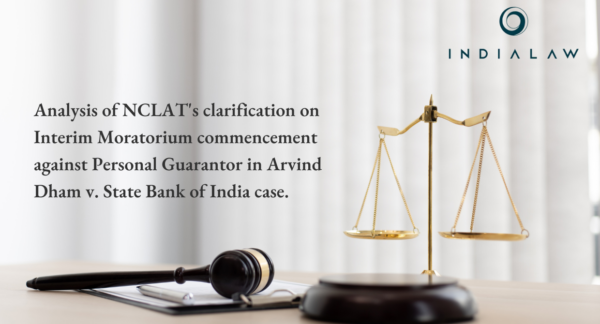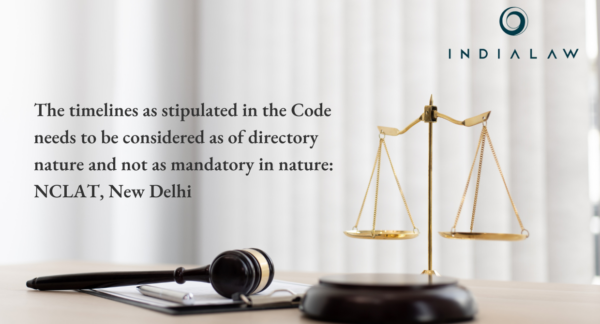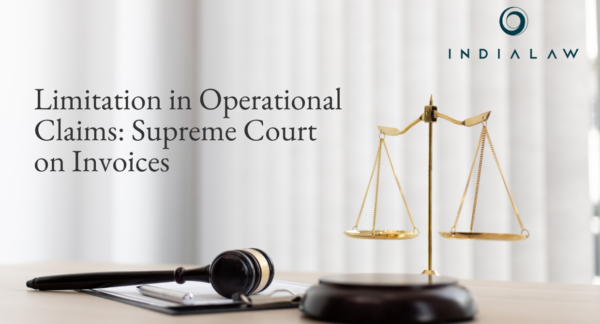Tag: NCLAT

Whether A Cost Incurred By Resolution Professional During CIRP Qualifies as CIRP Cost?
Introduction In a recent ruling dated 14.05.2024, in the case of Avil Menezes (Liquidator) v. Abdul Qudduskhan and Anr,[i] the Hon’ble NCLAT, New Delhi, clarified that the mere fact that dues have arisen during the

“NCLAT clarify when Interim moratorium commences against the Personal Guarantor, If Section 95 Application is not filed before proper jurisdictional NCLT” – An Analysis of the Mr Arvind Dham v. State Bank of India and Anr. Case.
Introduction: The case of Mr Arvind Dham v. State Bank of India and Anr. revolves around the admission of Section 95(1) application filed by the State Bank of India against the appellant, Mr Arvind Dham,

The timelines as stipulated in the Code needs to be considered as of directory nature and not as mandatory in nature: NCLAT, New Delhi
Introduction: In the matter of Vikram Laxman Pawar v. Sripatham Venkatasubramaniam Ramkumar, [i] the Hon’ble National Company Law Appellate Tribunal (NCLAT) held that the timelines established under the Insolvency and Bankruptcy Code should be regarded

In Operational Claims Arising Out Of Several Invoices, Those Invoices Falling Within The Three-Year Period Preceding The Date Of Filing Should Be Considered For The Purposes Of Limitation: Supreme Court
The Hon’ble Division Bench, Supreme Court of India, comprising of Justice Shri. Mukesh Kumar Rasikbhai Shah and Justice Shri C.T Ravikumar in the matter of M/s. Next Education India Pvt. Ltd. Vs. M/s. K12 Techno Services

ADJUDICATING AUTHORITY HAS NO JURISDICTION TO MODIFY A RESOLUTION PLAN: NCLAT
National Company Law Appellate Tribunal (NCLAT), Principal Bench, New Delhi, comprising of Justice Rakesh Kumar Member and Dr. Ashok Kumar Mishra in Mathuraprasad C Pandey & Ors. v Partiv Parikh & Anr.1, vide Judgement dated

IBC: AN ASSIGNEE IS a financial creditor under ibc and can continue CONTINUING PROCEEDINGS initiated under SECTION 7 by the assignor – nclat
The Hon’ble Division Bench, National Company Law Appellate Tribunal, (NCLAT) comprising of Justice Ashok Bhushan (Chiarperson) and Baru Mitra, Member (Technical) in Siti Networks Ltd. vs Assets Care & Reconstruction Enterprise Ltd. & Anr (Comp.
- Arbitration and Conciliation
- Banking and Finance
- Bankruptcy Code – Public Announcements
- Civil
- Commercial litigation
- Commercial/Corporate
- Competition act
- Criminal
- Cyber Law
- Debt Recovery
- Environment
- Family Law
- Food
- IL News
- Infrastructure
- Insolvency & Bankruptcy
- Insurance
- Intellectual Property Rights
- International
- Labour
- Law
- Medico-Legal
- Negotiable Instrument
- NRI Laws
- Policy
- Power
- Real Estate
- Tax

